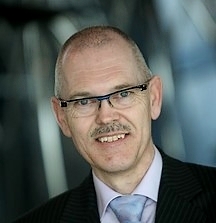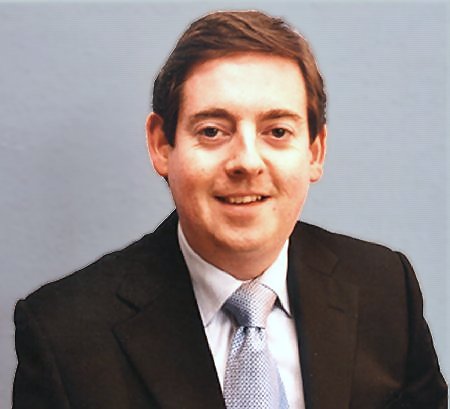

WICSA ECSA 2009 features three keynote addresses, tuesday, wednesday and thursday.
Tuesday 15 September, 9:00 – 10:00
abstract Successful Business & IT alignment depends on completing programs and projects that contribute to the company's strategic objectives. It sounds simple, doesn't it? But for some reason, it keeps eluding our grasp. It's an occupational hazard that business and IT executives deal with every day. They are aware of the need for business–IT alignment and achieve it on a peer level in the executive suite, but then something happens when the train pulls out of the station.
This is because business managers and IT professionals (software engineers/architects) don't understand each other.
Scientific research by Gereon Fink and John Marshall based on the theory of Nobel Prize winner Roger W. Sperry has shown that the human brain has two different processing styles:
According to the book Right Brain/Left Brain Leadership by Mary Lou Décosterd:
This presentation will drill down in more detail in the different thinking styles between software engineers/architects and business people and how enterprise architects can bridge the gap between both groups. Part of the presentation is a special brain processing test with the audience which will show your dominant thinking style.
 Jaap Schekkerman is the President and Founder of the
Institute For Enterprise Architecture Developments
(IFEAD) in the Netherlands. This institute works closely with other
research organisations, institutes and universities around the world
to create an independent platform for Enterprise Architecture
research, developments and knowledge exchange.
Jaap Schekkerman is the President and Founder of the
Institute For Enterprise Architecture Developments
(IFEAD) in the Netherlands. This institute works closely with other
research organisations, institutes and universities around the world
to create an independent platform for Enterprise Architecture
research, developments and knowledge exchange.
Mr. Schekkerman is running IFEAD in parallel with his Enterprise Architecture Opinion Leader activities for Logica Management Consulting the Netherlands, where he is practicing his Enterprise Architecture knowledge, experience and research.
Mr. Schekkerman has worked for more then 35 years in the Business, IT and Consultants world, with 25 years experience managing large, complex enterprise architecture programs in the Defence world, the Governmental area, travel industry and high tech industry. He is giving lectures on Enterprise Architecture at several Universities and received an engineer's degree in electronic engineering and information technology and a degree in clinical chemistry and business economics.
Jaap Schekkerman has published several methods, frameworks and articles and he is the (co)-author of more than 10 books on topics related to Enterprise Architecture Management. His most well known books are: How to survive in the jungle of Enterprise Architecture Frameworks, The Economic Benefits of Enterprise Architecture and the Enterprise Architecture Good Practices Guide, all published by Trafford Publishing, Canada. He is a frequently invited speaker at national and international congresses and symposia.
Wednesday 16 September, 9:00 – 10:00
abstract In many organisations enterprise architects, software architects and software development teams seem to have different priorities and this often results in them choosing very different solutions when they need to make a design decision. Enterprise architects take the long view and worry about the organisation as a whole, software architects may also take a long term view but they're worried about their system in particular, while software development teams often have to focus on the here-and-now, in terms of the next release that they need to deliver. These different priorities often cause a lot of spirited discussion between these different groups! However they're all trying to achieve the same goal, namely the delivery of the systems that their organisation needs.
The question I'm interested in answering is how we avoid conflict and allow enterprise architects, software architects and development teams to work together cooperatively.
In this talk I'll explain how the use of design principles—from the basic principles that underpin organisational choices, through the detailed principles used to guide the design of a system—are a unifying concept that help these different groups to work together in something close to harmony. Design principles can underpin a flow of decision making, prioritisation and cost justification from the organisation's strategic objectives through enterprise and software architecture, to the design decisions that software development teams need to make on a daily basis. If we can use design principles to link up decision making like this, then who knows, perhaps we could even have enterprise architects and software developers cooperating on a daily basis!
Download Eóin's slides.
 Eóin Woods has been working in software engineering for nearly 20
years for companies including Groupe Bull, Sybase, InterTrust, Zuhlke
and UBS Investment Bank, and through his consultancy company, Artechra
Limited.
Eóin Woods has been working in software engineering for nearly 20
years for companies including Groupe Bull, Sybase, InterTrust, Zuhlke
and UBS Investment Bank, and through his consultancy company, Artechra
Limited.
Currently, he is the software architect responsible for a new equities portfolio management system at Barclays Global Investors.
He is co-author of Software Systems Architecture: Working With Stakeholders using Viewpoints and Perspectives, published by Addison-Wesley 2005.
Eóin's principal technical interests are software architecture, distributed systems, computer security, and data management.
Eóin holds B.Sc. and M.Sc. degrees in Software Engineering from Brunel and Manchester Universities. He is a professional member of the British Computer Society and the Institution of Electrical Engineers, and is a chartered engineer (CEng) and chartered information technology professional (CITP). He's a fellow of the International Association of Software Architects and a member of International Federation for Information Processing Working Group, 2.10 on Software Architecture.
Thursday 17 September, 16:00 – 17:15
abstract In this talk I ask the highly ambiguous question: "Where is software architecture?" The answer depends on what "is" is, to borrow an infamous quote. I will provide several opinionated answers to the question based on various interpretations of "is": What is the current state of ideas in software architecture? What is the right direction to look to find promising new ideas? And, if software architecture is more than just an intellectual exercise, then where, quite literally, is it to be found in modern software systems?
 Alexander L. Wolf is professor in the Department of Computing at
Imperial College London (UK). He also holds appointments in the
Department of Computer Science at the University of Colorado at
Boulder (US), and the Faculty of Informatics at the University of
Lugano (CH).
Alexander L. Wolf is professor in the Department of Computing at
Imperial College London (UK). He also holds appointments in the
Department of Computer Science at the University of Colorado at
Boulder (US), and the Faculty of Informatics at the University of
Lugano (CH).
Prof. Wolf received the B.A. degree from Queens College of the City University of New York, majoring in Geology and Computer Science. He received the M.S. and Ph.D. degrees from the Department of Computer Science at the University of Massachusetts at Amherst. Prof. Wolf was a Member of the Technical Staff at AT&T Bell Laboratories (now AT&T Labs Research and Bell Laboratories) in Murray Hill, New Jersey, before joining the University of Colorado faculty.
Prof. Wolf's research interests are directed toward the discovery of principles and development of technologies to support the engineering of large, complex software systems. He has published in the areas of software engineering, distributed systems, networking, security, and database management.
Prof. Wolf serves as Chair of the Association for Computing Machinery (ACM) Special Interest Group Governing Board and is a member of the Executive Committee of the ACM Council. He is the chair of the ACM Software Systems Award committee and a participant in the ACM Distinguished Speakers Program. Prof. Wolf serves on the editorial boards of the IEEE Computer Society journal Transactions on Software Engineering and the Research Highlights section of ACM's flagship publication Communications of the ACM. Prof. Wolf is a Fellow of the ACM, a Chartered Fellow of the British Computer Society, holder of a Royal Society-Wolfson Research Merit Award, and recipient of an ACM SIGSOFT Research Impact Award.